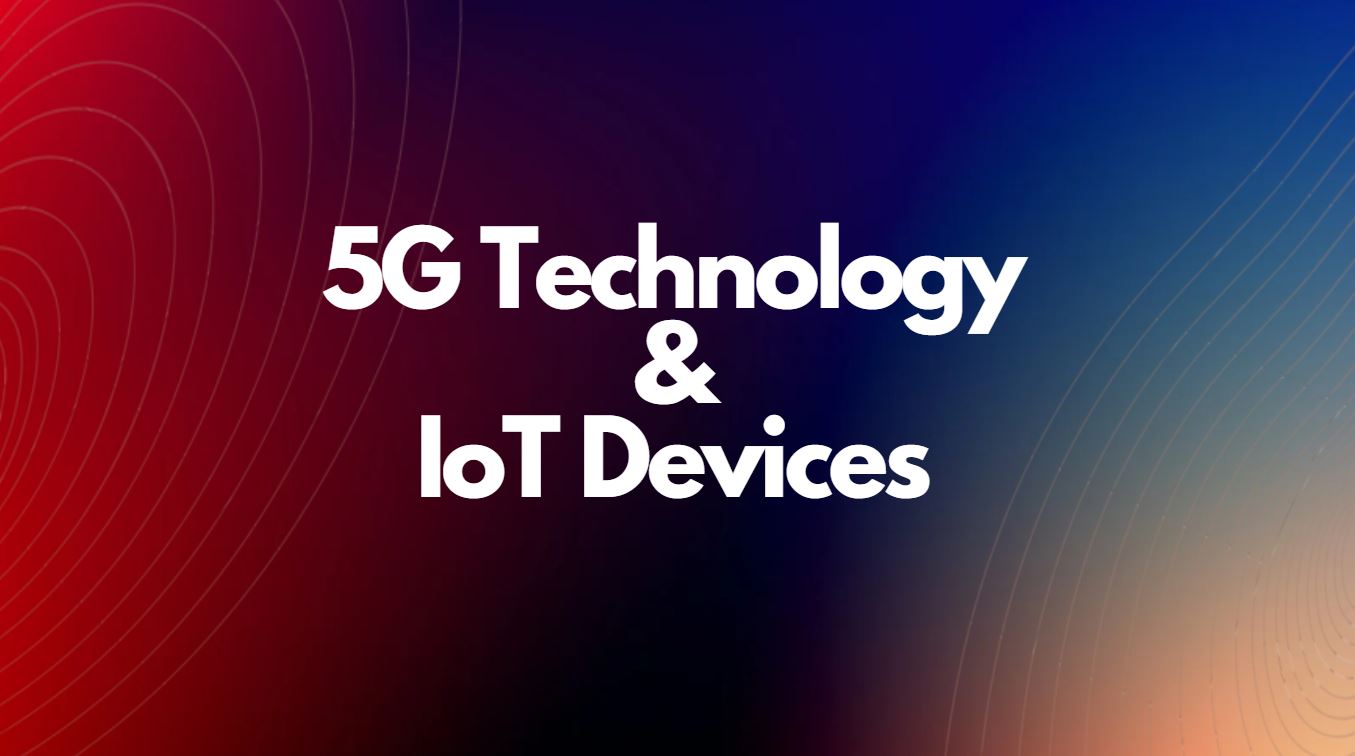- Likes
- Followers
- Followers
- Followers
- Subscribers
- Followers
- Members
- Followers
- Members
- Subscribers
- Subscribers
- Posts
- Comments
- Members
- Subscribe
The Impact of 5G Technology on IoT Devices

The 5th generation wireless network technology which is better known as 5G technology has on the other hand re-invented the smart IoT devices in relation to the connectivity, security, data transmission, and communication. 5G not only gives a breakthrough faster download speeds and lower latency for smartphones but also gives a wider impact for many scenarios. On one hand, IoT (Internet of Things) devices are great practical tools averting the need for human intervention. On the other hand, there are skyrocketing security liabilities associated with a huge number of connected devices. In this post, I’ll dive into how the 5G tech is changing the scenery of IoT devices and set off some flight of ideas about different industries and everyday life.
1. Quick Data Transfer Speeds On IoT Devices
Probably the most immediate benefits of 5G over the IoT devices is higher bandwidth and data transfer rates. Herewith intelligibility of IOT devices is contributed to a seamless data transmission and reception without lags. This is exemplary for the sectors of health care, manufacturing, and autonomous vehicles where a small time lapse could cause a lot of problems so this speed boost will be a real breakthrough. Telemedicine, machine-to-machine interaction via the internet and driverless vehicles all have the potential to be supported and improved by the high data throughput of the 5G networks.
2. Lower Latency
Throughput, a key time that the data works from the application source to target point, cannot be overlooked in most IoT applications. 5G technology provide ultra-low latency which at most time varies between 1 millisecond and less. The short latency is crucial for such apps like AR (augmented reality), VR (virtual reality), and so on as a remote controlling system. With 5G, the devices that uses IoT will give users immediate and smooth experiences. For example, these smart home devices can be controlled remotely and can operate heavy machines at a distance.
3. Increased Density of IoT Devices
In 5G networks, the devices per the square kilometers up to 1 million or more is supported by them which is much higher in comparison to previous generations. It is of utmost importance that this is taken care of as the number of IoT devices is increasing fast. Smart cities as a clear example can deploy such sensors and devices including thousands of them for traffic control, air quality monitoring, and public businesses that will not over load the network, but they will do that on the contrary.
4. Extended Battery Life
While 5G provides enhanced capabilities, it’s one of the key enabler also to make the network more energy-efficient. As such, any IoT devices with support to 5G network can be assured of longer device battery lives, which is of great importance for devices that might be deployed in remote locations or hard to reach at badly connected regions. Such development gives a possibility to address long-lasting sensors application for agriculture, environmental monitoring, and wildlife tracking.
5. Enhanced Security For IoT Devices
Security is quintessential for all IoT device because they mainly operate with sensitive information. Along with 5G, the technology is introducing more than just higher speed, security level is bettered with stronger encryption and authentication protocols. The layering of security has high priority for industries such as in health care, where the patient data, the medical devices and other information is to be immune from cyber threats.
Posts You May Like
6. Edge Computing Integration
The edge computing when parasitically combined with the 5G technology allows for smooth integration into the IoT environments without any complexities involved. On the other hand, edge computing is capable of the generation of the data processing to near the source of data, which results in the salvage of the transmission of significant amount of the data to centralized cloud servers. This is not only decrease in data transmission time but also increases privacy and can be game changer for automation vehicles and smart manufacturing applications.
7. Transforming Industries
The impact of 5G technologies on IoT (Internet of Things) is already pushed forward various industries such as-
Healthcare: Remote patient monitoring and telemedicine account for real time data transmission from patients to doctors that saves time for doctors and assist patients to take prompt steps
Manufacturing: Smart factories capture 5G-made streamlined production process, allotting higher efficiency through the ability to monitor and control the operations of machines in real time, interrupting machine downtime.
Transportation: The low-latency and high-speed connections offered by the 5G vastly improve the safety and driving comfort of self-driving cars.
Agriculture: Smart agriculture sectors employ 5G as a high-speed and reliable network that is used to aid farmers in growing crops optimally and therefore increasing yields.
Smart Cities: Multiple cities use IoT interventions in the form of sensors and devices, to better the services available, route and control traffic system, and keep an eye on the environment.
8. Enhanced User Experiences
As a result, the IoT products and IoT tech enabled smart devices we come across daily becomes more responsive and efficient in terms of their functionality and performance because of 5G. Users will be able to experience better performance due to the enhanced speed & reliability of the connections, no matter it’s streaming 4K videos on smart TVs or perceiving to voice activated smart assistants.
At the end, the 5G technology is now for the IoT device, with the high speed, low latency and increased device density. With this digital mixture going the way of industries, upgrading user experience, and allowing for something unique in innovation. With growing pace of 5G networks deployment across the globe, the role of IoT in our rather interconnected world will be further expanded.
Image credit- Canva


Comments are closed.